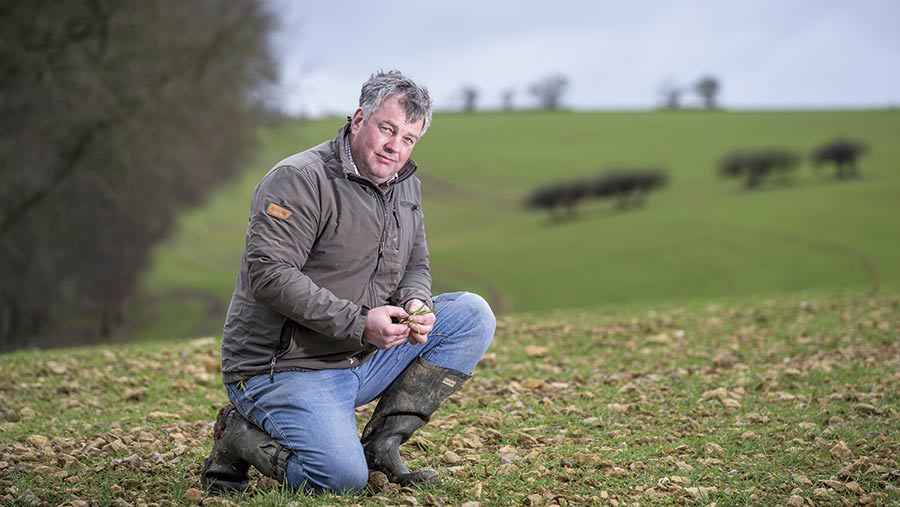Farmer Focus: Soils under scrutiny by visiting guru
 © Jim Varney
© Jim Varney As I write this, spring seems to have arrived, albeit a month late. But who knows: by the time you read this, could it be snowing again?
We’ve been able to get some land work done, as well as some long overdue fertiliser and trace element tonics applied to winter cereals.
As always, barley looks the worst coming out of winter — but let’s hope it will recover quickly. The oilseed rape looks well despite ever-expanding flocks of pigeons.
See also: 3 ways to measure your earthworm numbers
As we discovered lately, following a visit by soil scientist Liz Stockdale, our soils are not in bad health — but we have suffered from the wet autumn more than we thought.
Dave Blacker, ex-AHDB monitor farmer turned apprentice soil guru, excelled himself alongside Dr Stockdale performing several soil-type experiments: bulk density, infiltration, visual evaluation and the all-important worm count, despite freezing conditions and no gloves.
Precarious food chain
At the Sustainable Futures Conference in York in March, it was great to hear Yorkshire Water being proactive with tackling metaldehyde in the water supply, and soil run-off.
Its new trial projects may well lead to a blueprint for dealing with these problems together.
Even though there is a really positive tone coming from Defra these days, I still keep having a pop at Michael Gove —because he keeps putting his head in my sights.
No one set of policies suits everyone, but I urge him to listen to a balance of opinions from real farmers before making decisions that will affect us long after he has moved on.
As the NFU’s new headmistress Minette Batters pointed out during the recent snows, the food chain is longer and more precarious than it ought to be — and susceptible to both physical and political interference.
Television pictures of empty supermarket shelves might at last prod MPs to ask themselves: what price can you put on food security?
Richard Wainwright farms 510ha in Ryedale, on the southern edge of the North Yorkshire Moors. With soil types ranging from heavy clay loam to limestone brash, the family partnership grows winter wheat, winter barley, oilseed rape, spring beans and rotational grass leys. The farm also runs a large beef fattening unit.

